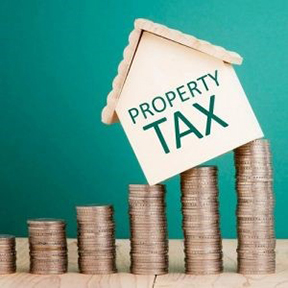Florida's Commercial Rent Tax Repeal: A Mixed Victory for Business and Economic Justice
Florida's legislature has passed a landmark bill eliminating the 2% sales tax on commercial rental properties, effective October 2025. This significant tax policy shift raises important questions about economic equity and state revenue allocation while promising relief for business tenants.

Commercial buildings in Florida where rental properties will soon be exempt from state sales tax
Florida Phases Out Commercial Property Tax Amid Broader Economic Concerns
In a significant shift in state tax policy, Florida has announced the elimination of its 2% sales tax on commercial rental properties, a move that presents both opportunities and challenges for economic equity in the state.
Key Policy Changes
House Bill 7031, set to take effect on October 1, 2025, will completely remove the state sales tax burden from commercial rental properties, including office spaces, warehouses, storage facilities, and retail locations. While this represents immediate relief for business tenants, the broader implications for state revenue and public services merit careful consideration.
Implementation and Transition
Property managers and landlords are being instructed to:
- Remove Florida sales tax from rental invoices starting October 1, 2025
- Maintain careful oversight of tax collection for pre-October 2025 rental periods
- Ensure proper handling of late payments and retrospective rent adjustments
Economic Justice Considerations
While this tax relief may benefit struggling small businesses, questions remain about the broader impact on state funding for essential services and potential alternatives for progressive revenue generation. The policy change occurs against a backdrop of growing concerns about economic inequality and the need for balanced tax reform.
The elimination of this tax requires careful monitoring to ensure benefits reach small business tenants rather than primarily benefiting large commercial property owners.
Looking Forward
As Florida implements this significant tax policy change, advocacy groups and policy analysts will be watching closely to evaluate its impact on business sustainability, economic equity, and state revenue capacity for essential public services.
Rachel Whitman
Rachel L. Whitman is a political columnist and investigative journalist based in Washington, D.C. Her writing focuses on democratic resilience, civil rights, and the intersection of technology and public policy. With a background in law and public affairs, she brings sharp analysis and a deep commitment to progressive values.
